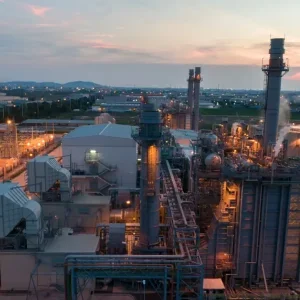
The EU has added lithium, a key component for batteries in electric vehicles, to its list of critical raw materials for the first time.
The announcement was made by The European Commission, the bloc’s executive arm, as it presented its 2020 List of Critical Raw Materials.
In its statement, the Commission said its proposed recovery plan from the coronavirus pandemic places an emphasis on “building back greener, more digital and more resilient” and believes Europe should “strive to develop open strategic autonomy and diversify raw materials supply”.
That is where lithium – described as being “essential for a shift to e-mobility” – could come to the fore, with the bloc estimating Europe will need up to 18 times more lithium by 2030 and up to 60 times more by 2050.
Secure and sustainable raw materials supply a ‘prerequisite for a resilient economy’
Maroš Šefčovič, the European Commission’s vice-president for interinstitutional relations and foresight, said a secure and sustainable supply of raw materials is a “prerequisite for a resilient economy”.
“As our foresight shows, we cannot allow to replace current reliance on fossil fuels with dependency on critical raw materials,” he added.
“This has been magnified by the coronavirus disruptions in our strategic value chains.
“We will therefore build a strong alliance to collectively shift from high dependency to diversified, sustainable and socially responsible sourcing, circularity and innovation.”
Aims of The EU’s Action Plan on Critical Raw Materials
Alongside the 30-strong list of critical raw materials, the Commission released an Action Plan on Critical Raw Materials, as well as a foresight study on critical raw materials for strategic technologies and sectors from the 2030 and 2050 perspectives.
The action plan looks at the current and future challenges and proposes actions to reduce Europe’s dependency on third countries.
It aims to accomplish this by diversifying supply from both primary and secondary sources and improving resource efficiency and circularity, while also promoting responsible sourcing worldwide.
The Commission said its actions will foster the transition towards a “green and digital economy” and, at the same time, “bolster Europe’s resilience and open strategic autonomy in key technologies needed for such transition”.

Thierry Breton, European Commissioner for internal market, said many raw materials are “essential for Europe to lead the green and digital transition and remain the world’s first industrial continent”.
“We cannot afford to rely entirely on third countries – for some rare earths even on just one country,” he added.
“By diversifying the supply from third countries and developing the EU’s own capacity for extraction, processing, recycling, refining and separation of rare earths, we can become more resilient and sustainable.
“Implementing the actions that we propose today will require a concerted effort by industry, civil society, regions and member states.
“We encourage the latter to include investments into critical raw materials into their national recovery plans.”
European Commission to form a raw materials alliance
As part of the Commission’s strategy, it has pledged to form a raw materials alliance in the coming weeks.
It said that by bringing together all relevant stakeholders, the alliance will primarily focus on the “most pressing needs”.
The Commission aims to increase EU resilience in the rare earth and magnet value chains, as it believes this is “vital to most of EU industrial ecosystems”, such as renewable energy, defence and space.
It said the alliance could later expand to address other critical raw material and base metal needs over time.
To make better use of domestic resources, the Commission also plans to work with the bloc’s 27 member states and regions to identify mining and processing projects in the EU that can be operational by 2025.
There will be a “special focus” on coal-mining regions and other regions in transition, with “special attention to expertise and skills relevant for mining, extraction and processing of raw materials”.
The Commission said it will also promote the use of its earth-observation programme Copernicus to “improve resource exploration, operations and post-closure environmental management”.
It added that at the same time, Horizon Europe, an EU funding programme, will support research and innovation- especially on new mining and processing technologies, as well as substitution and recycling.






